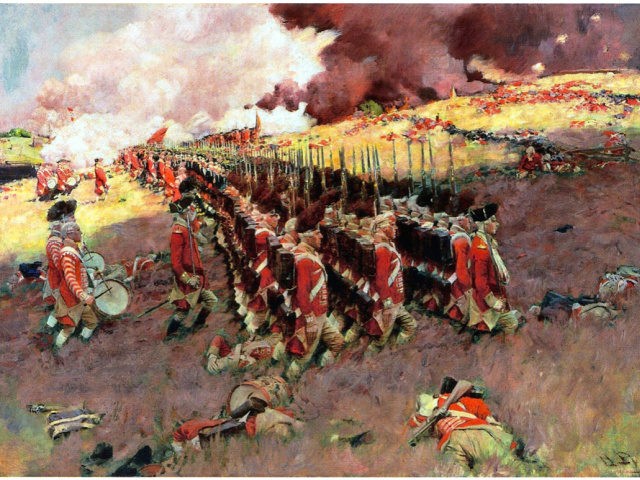Doctor Bond had a problem. During the Battle of Lexington and Concord in obedience to his Hippocratic Oath, he had treated British soldiers. For performing his duty as a doctor, he was falsely accused of being a Loyalist and had his life threatened by an angry mob.
His house surrounded, in fear of his life, Bond wrote to his well-connected friend, fellow Marbleheader, and future Congressman and Vice-President Elbridge Gerry appealing for an escort through the mob so his case could be heard, “So strongly and barbarously cruelly represented that I am in danger of my life every moment. Thousands having sworn to kill me at first sight. What I must beg and entreat of you Sir is that you will be kind enough to appeal to the Commanding Officer to send immediately a strong guard to carry me to the camp for a trial by Court Marshall [sic].”
In the 1770s the consequences of cancel culture could be deadly.
In case there was any doubt to the urgency of the situation and the intent of the mob, Bond signed his letter, “This Sir is the only way by which I can be alive to hope one day longer. If you cannot attend to the matter you will undoubtedly soon hear that I am gone from this life.”
Doctor Bond also called his long-time friend, Doctor Joseph Warren, president of the Massachusetts Provincial Congress and brother-in-arms at Lexington, to his defense. Bond’s friendship with this Son of Liberty dated back to Harvard when they were both members of a secret society of Resurrectionists known as the Spunker Club who would steal bodies from graves in order for medical students to study them.
Apparently, it helps to have friends in high places, for Bond was eventually able to present the facts and was exonerated of any wrongdoing by the committee Warren chaired. Having survived the ordeal, Bond went on to become not only a company commander and fighting surgeon in the Marblehead Regiment, but also serve as a key component in executing one of Washington’s most strategic decisions.
Like Bond’s name, the full untold story of this remarkable regiment was almost lost to history but is now told in the new bestselling book, The Indispensables: Marblehead’s Diverse Soldier-Mariners Who Shaped the Country, Formed the Navy, and Rowed Washington Across the Delaware. The book is a Band of Brothers-style treatment of this unique group of Americans who changed the course of the Revolution.
Only weeks after having his loyalty questioned and his life threatened, Bond would risk his life treating the wounded in the same battle where his friend Doctor Warren would lose his, the Battle of Bunker Hill.
Doctor Bond would continue to both fight and treat the wounded of the Marblehead Regiment, the men who repeatedly emerged in the right place at the right time in numerous inflection points in the war from major engagements like the American Dunkirk after the Battle of Long Island and rowing Washington’s army across the Delaware after the Battle of Trenton to many now largely forgotten but critical battles like the Battles of Pell’s Point and White Plains.
No one can measure the number of casualties prevented on the battlefield by the hands of a skilled surgeon, but Doctor Bond had another weapon in his arsenal as well. He was an expert in infectious diseases. Smallpox raged through Washington’s army, killing almost as many men as the British. Doctor Bond had not only his medical training but valuable firsthand experience in fighting the virus during its outbreak in Marblehead in 1774 where he supervised the inoculation the town’s population at the hospital on Cat Island. Before Edward Jenner discovered the first successful smallpox vaccine in 1796, inoculation, a procedure which involved lancing a pustule and then inserting the contaminated knife under the skin of a healthy person, was the only defense against this deadly plague. Patients might develop antibodies that allowed them to combat the disease and eventually become immune or they could also die. It was a game of Russian roulette—would inoculation protect or kill?
A renowned historian called Washington’s controversial edict, American’s first national public health declaration, to inoculate his army the most important strategic decision of his military career. And once again, a Marbleheader was in the right place at the right time to execute the risky mission. In 1777, Doctor Bond retired from his role as company commander and reverted once again to full-time healer as he administered and supervised the inoculation of Washington’s army. It was his last act of service to the Patriot cause before his death that winter. The man who was initially considered a traitor or a Loyalist became the savior of the Continental Army.
Patrick K. O’Donnell is a bestselling, critically acclaimed military historian and an expert on elite units. He is the author of twelve books, including The Indispensables, which is featured nationally at Barnes & Noble, Washington’s Immortals, and The Unknowns. O’Donnell served as a combat historian in a Marine rifle platoon during the Battle of Fallujah and often speaks on espionage, special operations, and counterinsurgency. He has provided historical consulting for DreamWorks’ award-winning miniseries Band of Brothers and documentaries produced by the BBC, the History Channel, and Discovery. PatrickODonnell.com @combathistorian
Caption: Cancel culture in 1775 could be deadly. “I am in danger of my life every moment thousands having sworn to kill me at first sight.” Ultimately, Doctor Bond was wrongly accused, exonerated in trial, and went on to be a company commander of The Indispensables and saved the Continental Army by inoculating it but perished in the process. Source: Author owns original letter

COMMENTS
Please let us know if you're having issues with commenting.